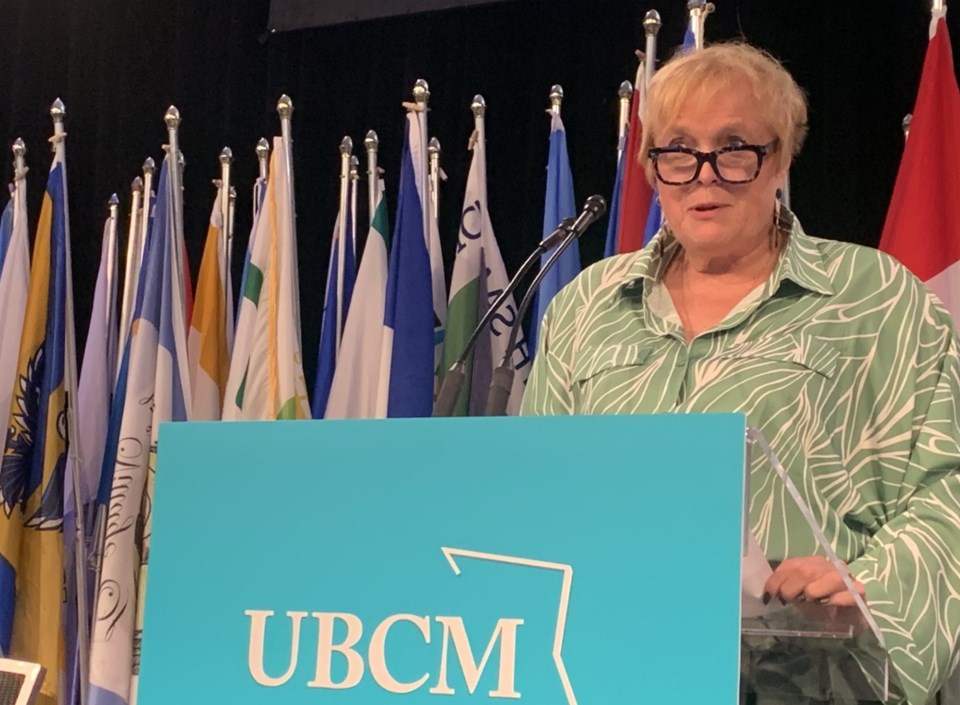Union of BC Municipalities (UBCM) delegates Sept. 20 called on the provincial government to modernize the emergency call system to better handle disasters and mental health issues.
And that would include putting a monthly levy on cellphones to help pay for the system.
A special resolution put forward at the UBCM’s annual conference in Vancouver passed by a vote with a majority show of hands.
Specifically, the resolution calls on Victoria to:
• implement a 911 call monthly levy on cellular devices, to address current and future financial challenges associated with the delivery of 911 services;
• develop consistent 911 service standards, without increasing service costs for local governments;
• create a provincial 911 governance model, with local government representation, to address policy and service standard issues, and manage revenue; and
• integrate mental health call options within the 911 framework.
UBCM executive member Laurey-Anne Roodenburg, a Quesnel councillor, said the resolution was a combination of multiple such proposals put forward.
And, said Coquitlam Coun. Craig Hodge, the 911 system must be updated as the province faces more disasters and emergencies.
He further said putting all emergency calls through one system would simplify issues, and that people with mental health concerns could be routed appropriately by 911 operators.
Port Moody Mayor Meghan Lahti said most 911 calls come from cellphones.
The resolution said that in March the province announced funds towards the implementation of Next Generation 911 (NG911), a federally mandated initiative to modernize 911 networks and infrastructure across Canada.
Funds include $90 million towards E-Comm 911 technological upgrades and other work associated with the transition that would otherwise be funded by local governments, and $60 million to UBCM to support local government transition costs.
However, the resolution said, NG911 implementation will likely increase the annual cost of 911 service delivery, which will be borne by local governments.
“The financial pressures to fund the 911 system are even more noteworthy given the lack of a province-wide call answer levy on cellular devices,” the resolution said.
“While most Canadian provinces have already implemented such a levy, BC local governments are only able to pay for this service through property taxes or a levy on those that still use landline phones.”
The resolution said data provided by E-Comm 911 shows annual call volumes have increased over the past several years, putting substantial pressure on the dispatch system.
And, it said, many 911 calls are also related to mental health, and without a dedicated call option, affected individuals are often passed to agencies who are not and should not be expected to take the place of trained mental health professionals.
“While the 911 emergency communications system has become province-wide, with E-Comm handling 99 percent of calls, BC still lacks a provincial 911 governance structure.," the resolution said.
"This means that many local governments are not able to provide direct input towards the 911 services that they fund and receive. This has made it difficult to develop, among other things, province-wide standards, which would ensure all areas of the province are receiving the same level of service.”


